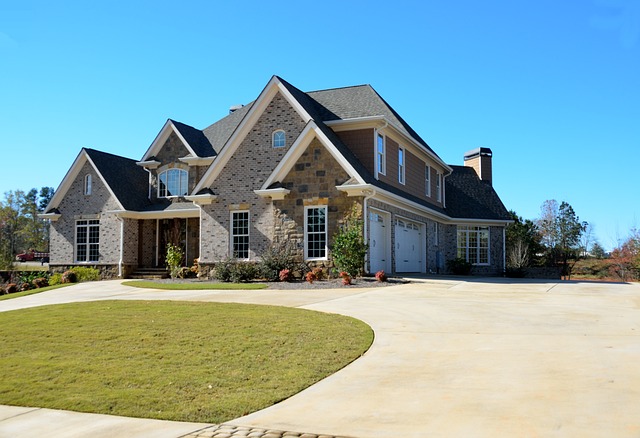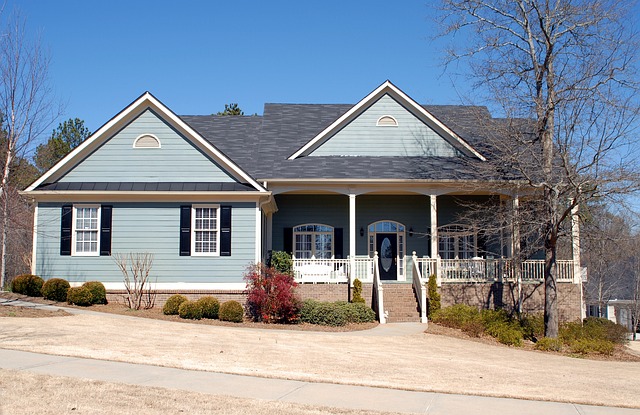In Singapore, purchasing a second residential property as an individual, whether a citizen or permanent resident, comes with a 7% Additional Buyer's Stamp Duty (ABSD) for the second property, which increases to 10% for the third and subsequent properties. Foreigners face a higher ABSD rate of 15%. The ABSD is a critical financial consideration for investors, aiming to stabilize the property market by discouraging speculative buying. The Absolute Deferred Settlement (ADS) scheme allows foreign ownership under deferred payment conditions, but this process requires strict compliance with Singapore's property laws and should be navigated with expert advice. Investors must also consider the competitive and high-demand nature of Singapore's real estate market, where limited land drives up values, making it crucial to evaluate investment decisions against market trends and personal financial circumstances. The ABSD significantly affects total costs and long-term planning for property owners. Eligibility under the Absolute Deferred Settlement (ADS) framework differs for Singaporean citizens and permanent residents; citizens may be exempt from LAS approval under certain conditions, while permanent residents require LAS permission to buy a second property. Both must pay ABSD, which is integral in regulating demand and maintaining market stability. Prospective buyers need to understand the ADS and ABSD rules thoroughly to make informed decisions when investing in a second property in Singapore.
Navigating the property market in Singapore as a second-property buyer presents unique challenges that extend beyond the allure of the city-state’s real estate landscape. The Additional Buyer’s Stamp Duty (ABSD) framework, financial planning considerations, and strategic decision-making between resale and new launch properties are critical factors to consider when acquiring a second property here. This article demystifies these challenges, guiding you through the ABSD Singapore 2nd Property implications, financial landscapes, market nuances, and legal compliance requisites. Whether you’re a Singaporean citizen or a permanent resident, understanding the intricacies of purchasing a second home is essential for making informed investment choices and ensuring your venture aligns with Singapore’s property regulations.
- Understanding the Additional Buyer's Stamp Duty (ABSD) Framework for Second Properties in Singapore
- <a href="#—-overview-of-absd-and-its-implications-for-second-property-buyers”> Overview of ABSD and its implications for second property buyers
- <a href="#—-differentiating-between-singaporean-citizens-and-permanent-residents”> Differentiating between Singaporean citizens and permanent residents
Understanding the Additional Buyer's Stamp Duty (ABSD) Framework for Second Properties in Singapore
Navigating the Additional Buyer’s Stamp Duty (ABSD) framework is a critical aspect for individuals considering the purchase of a second property in Singapore. The ABSD is a tax levied on individuals buying properties here, with rates that escalate progressively with each additional property acquisition. ForSingaporeans purchasing their second residential property, the ABSD rate stands at 7%. This rate increases to 10% for third and subsequent properties. It’s imperative for potential buyers to understand the implications of this duty, as it significantly impacts the overall cost of acquiring a new property. Foreign entities are subject to an even higher ABSD rate of 15%, further emphasizing the importance of careful consideration when entering into such real estate transactions. Prospective buyers must also stay abreast of any changes to the ABSD framework, as Singapore’s government adjusts these policies to maintain a stable property market and address economic considerations. Understanding the nuances of the ABSD for second properties in Singapore is not just about compliance; it’s a strategic financial decision that can influence the long-term value and feasibility of real estate investments within the country.
When considering the acquisition of a second property in Singapore under the Absolute Deferred Settlement (ADS) scheme, prospective buyers face several challenges that are distinct from their initial property purchase. One of the primary hurdles is understanding the ADS framework itself, which allows foreigners to own residential property without the necessity of residing in the country. This scheme involves a deferred payment structure where the title to the property is only transferred upon certain conditions being fulfilled, typically after a period of residence or sale of the property. Navigating the legal intricacies and compliance requirements of ADS can be complex, necessitating expert advice from legal and financial professionals who are well-versed in Singapore’s property laws.
Another significant challenge is the competitive nature of the property market in Singapore. With limited land space and a high demand for properties, both local and international investors are often in a bidding war for desirable real estate. This competition drives up prices and can make it difficult for buyers to secure a second property at a favorable price point. Additionally, the decision to invest in a second property should be informed by market trends, economic indicators, and personal financial stability. Buyers must conduct thorough due diligence, including assessing the potential rental yields and long-term capital appreciation of the property, to ensure that it aligns with their investment strategy and objectives for owning a second home in Singapore.
<section id="—-overview-of-absd-and-its-implications-for-second-property-buyers”>
Overview of ABSD and its implications for second property buyers
In Singapore, the Additional Buyers’ Stamp Duty (ABSD) is a significant factor for individuals considering the purchase of a second property. This duty is imposed on top of the existing stamp duty on residential properties and serves as a means to curb speculative buying and ensure a stable property market. For prospective buyers aiming to acquire a second property, the ABSD Singapore 2nd Property imposes progressively higher rates depending on the type of property being purchased and the citizenship of the buyer. Foreign entities face even steeper duties, making investments more costly and challenging. The implications of this duty are multifaceted; it not only affects the upfront costs associated with the transaction but also influences the long-term financial planning for property owners. Buyers must carefully evaluate their financial capacity to absorb these additional costs, as they can significantly impact the overall affordability and viability of owning multiple properties in Singapore.
Navigating the ABSD requirements is crucial for second property buyers in Singapore. The duty rates vary according to existing ownerships;Singapore citizens and permanent residents are subject to different rates compared to foreigners or entities. For instance, an individual who already owns a property will incur a higher ABSD rate upon acquiring a second property. This mechanism aims to prevent property market speculation and ensure that housing remains accessible for first-time homeowners. To manage the financial burden of the ABSD, buyers must have a clear understanding of their financial commitments and the long-term implications of adding to their property portfolio. The duty not only affects the immediate transaction but also has repercussions on future property acquisition plans, necessitating careful planning and consideration of the evolving property landscape in Singapore.
<section id="—-differentiating-between-singaporean-citizens-and-permanent-residents”>
Differentiating between Singaporean citizens and permanent residents
When considering the acquisition of a second property in Singapore, understanding the distinctions between Singaporean citizens and permanent residents is paramount. The Absolute Sale and Purchase (ASP) framework in Singapore differentiates between these two groups, with varying rules and regulations that govern their eligibility for purchasing properties. For instance, Singaporean citizens have more options when it comes to property ownership, including the ability to own a second property under certain conditions without the need for approval from the Land Authority of Singapore (LAS), thanks to the ABCW rule (Public Housing & Income Rights Act). On the other hand, permanent residents face more restrictions and are only allowed to purchase second properties under specific circumstances that require prior LAS approval. This distinction is crucial as it dictates the process and the permissions required to complete the transaction. Additionally, non-residents, including both Singaporean citizens and permanent residents, must navigate the Additional Buyer’s Stamp Duty (ABSD) when acquiring a second property, which aims to curb speculative demand and ensure a stable property market in Singapore. Prospective buyers must carefully assess their eligibility status under the ASP framework and understand the implications of the ABSD to make informed decisions when purchasing a second property in this vibrant island state.
When considering the purchase of a second property in Singapore, navigating the Additional Buyer’s Stamp Duty (ABSD) framework is a pivotal aspect that buyers must understand. This article has shed light on the intricacies of ABSD for both Singaporean citizens and permanent residents, highlighting the significant impact this tax has on second property acquisitions within the country. Prospective buyers should take note of the varying rates and their implications on investment strategies. The process is not merely a formality but a critical factor influencing the affordability and feasibility of owning multiple properties in Singapore’s competitive real estate market. Therefore, due diligence and comprehensive understanding of ABSD are indispensable for making informed decisions when purchasing a second property.



